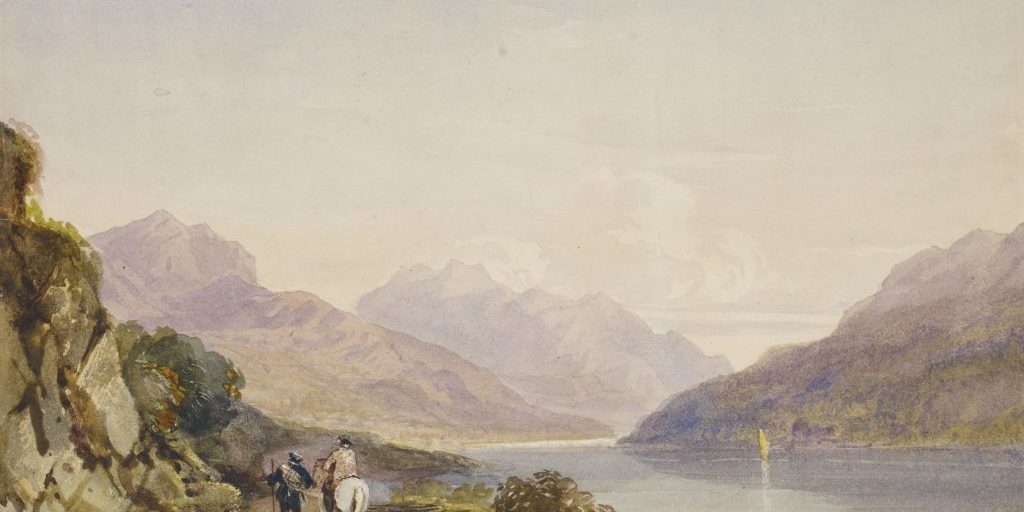
How the Psalms Teach Us Contentment
Throughout the Psalms, the writers make plain that theology and doxology are not at odds with one another, but rather what one knows about God changes the way he or she lives before God. The Psalms provide a window into the soul and prayer life of its various writers. The psalmists embrace tension as they wrestle with their circumstances and who God is to them in those circumstances. In many places throughout the Psalms, the two beat up against one another. One such topic in which this happens in the Psalms pertains to the issue of contentment. It is impossible to read the Psalms and not see that they knew the Lord’s character and who he was to them in their circumstances. They exhibit a dependence upon God’s character when the circumstances he ordained for them disoriented them and troubled them.
Expressing Discontentment
The Scriptures testify at length of God’s aseity, which is to say that God has life in and of himself. There is nothing lacking in him and he is not dependent on anyone or anything; he himself is the source of all life, goodness and delight. To put it another way, Charnock wrote, “Happiness cannot perish as long as God lives: he is the first and the last; the first of all delights, nothing before him; the last of all pleasures, nothing beyond him.”1
In reading the Psalms, one does not draw the conclusion that the writers believed lasting happiness and satisfaction to be found anywhere other than God. God was David’s covenant-Creator, and David knew that rest, peace, and joy do not come in a utopian set of perfect circumstances. This is why he wrestles with his longings, and ultimately submits his desires to the Lord. When the various psalmists express their discontentment, they do so by expressing a desire to be made happy by God: to rest in the life and communion found in God, not in a particular set of circumstances. Those things could not fill the psalmists up to overflowing praise and adoration, but only in communing with the Giver of those circumstances would they be satisfied. In reading the Psalms, one does not draw the conclusion that the writers believed lasting happiness and satisfaction to be found anywhere other than God. Click To Tweet
Prayer is where David came to express his emotions to God and then to surrender those feelings to God.
In your presence there is fullness of joy;
At your right hand are pleasures forevermore. (Ps. 16:11)
David’s contentment (or desire for it) originated in his covenant relationship with Yahweh. David trusted Yahweh, and therefore trusted God’s provision for him and God’s promises to him. A heart that is in turmoil with the gravest diagnosis can be content, not because it is a peaceful experience but because a heart is made content in fixing its adoring gaze on the Giver of those circumstances, not the severity or pleasantness of the circumstance itself. Of the many requests that David could make to the Lord, he repeatedly emphasizes a desire to dwell in God’s presence above all.
One thing have I asked of the LORD
All the days of my life,
To gaze upon the beauty of the LORD
And to inquire in his temple. (Ps. 27:4)
David did not desire to escape his circumstances but to experience the pleasure and satisfaction that comes through communing with God in the midst of them.
What the Psalmists Don’t Do
The psalmists believed Yahweh to be actively involved in every facet of their lives. Driving David’s prayer life is a joyous fellowship with his covenant-Creator. The insight into the prayer life of David and what he chooses to express to the Lord is indicative of his covenant relationship with the Lord. He desires to communicate with the Lord. David does not try to find the answer to his circumstances in himself, but he brings it to the Lord, expresses it, and trusts God’s unsearchable wisdom in his life. Further, David does not hold back or stuff his emotions down, even when they are intense emotions. He does not withhold his burdens, aches, disappointments or fears from the Lord.
Give ear to my words, O LORD;
Consider my groaning.
Give attention to the sound of my cry,
my King and my God, for to you do I pray. (Ps. 5:1-3)
It is precisely because David knew who his God was that he took his burdens to him. In seeking the Lord’s face in prayer, David is turning from himself to God. Many times God delivered David, but on many occasions David’s circumstances did not change and God rather softened the anguish David felt inside with himself. When David experienced immense loss on one occasion and wept until he “had no more strength to weep”(1 Sam. 30:4), he prayed out of a conviction that God’s steadfast love was more enduring and more unshakeable than whatever loss he was experiencing. Communing with his steadfast God was where his soul found quietness and rest. This is why after experiencing intense grief that David pivoted and “strengthened himself in the LORD his God.” (1 Sam. 30:6) David longs to rest in God’s steadfast love in the midst of his turmoil:
Steadfast love surrounds the one who trusts in the Lord
Be glad in the Lord, and rejoice, O righteous,
And shout for joy, all you upright in heart! (Ps. 32:10-11)
It is not the mere idea of a God who is a very help in times of trouble that makes a heart content; it is God himself who makes a heart content. When a person’s life feels that it is spinning out of control, it is the natural (that is, worldly and ungodly) inclination of a person living in a fallen and broken world to grasp onto anyone and anything they feel will stabilize them and bring peace and rest in the moment. For the psalmists, God is not only enough to satisfy their needs, but God is the only source of true and satisfying contentment. Until the psalmist embraces God as his true source of contentment, he will toil in vain and remain restless. God has created all humans to receive life outside of themselves, and like a weaned baby, that baby must stop fighting and rest in its mother’s arms to receive nourishment.
I do not occupy myself with things
Too great and too marvelous for me.
But I have calmed and quieted my soul,
Like a weaned child with its mother;
Like a weaned child is my soul within me. (Ps. 131:1b-2)
The Psalmists Chief Desire
Christians today can be joyfully content in the Lord in the midst of food shortages, persecution, relational and church conflict, protests, unemployment, illness, death and everything else under the sun because Christians do not find life and purpose in those things. Life cannot be found in those things, because life cannot be found in created things. Life can only be found in the Creator of all things. This Creator has not only promised to save those who call upon his name, but he has covenanted himself, that is, he has made an oath and commitment to those who seek his face. David did not desire to escape his circumstances but to experience the pleasure and satisfaction that comes through communing with God in the midst of them. Click To Tweet
Above all, the psalmists chief desire was a longing for God. It is because of this that the church father Augustine can say of all earthly pleasures, “How sweet all at once it was for me to be ride of those fruitless joys which I had once feared to lose and was now glad to reject!”2 This is to say that earthly joys are incomparable to the richness of gazing upon the Lord and dwelling in sweet communion with him.
My soul thirsts for you;
My flesh faints for you,
As in a dry and weary land where there is no water (Ps. 63:1)
The psalmist does not say that he thirsts for financial stability, a pain free life, marriage, children, or anything else of the like; the psalmist intensely and wholeheartedly longs for God alone. All of these things are good gifts to be received with gladness, but they become idols when they are longed for and thirsted after more than God.
Christians today have an access to the triune God that the psalmists could have only dreamed of. For Christians on this side of the cross, God’s very Spirit dwells in them and Jesus himself is the object of all joy and satisfaction. He is now the ultimate treasure to be desired, and everything else is loss in comparison to knowing him and being called his own.
I count everything as loss because of the surpassing worth of knowing Jesus Christ my Lord. For his sake I have suffered the loss of all things and count them as rubbish, in order that I may gain Christ and be found in him. (Phil. 3:8)
Contentment requires trust in the one true God, of whom he will be likened to no one (Is. 40:18) or nothing else. There is none like him (Ps. 86:8), in heaven or earth, and his knowledge is incomprehensible. He alone reigns over all and sustains and ordains all things, holding within himself infinite power and wisdom to work together his sovereign purposes that are both for his glory and the good flourishing of his people whom he has chosen and set apart for himself. The cry of Augustine in his Confessions is a cry that echoes the longings of the psalmists: “Let this be the cry of my whole being: Lord, there is none like you.”3
Sources
1 Charnock, “The Existence and Attributes of God,” in The Works of Stephen Charnock: Vol.1, (Edinburgh: Banner of Truth, 2010), 364.
2 Augustine, “Book IX,” in Confessions, trans. By R.S. Pine-Coffin (London: Penguin, 1961), 181.
3 Ibid., 181.

